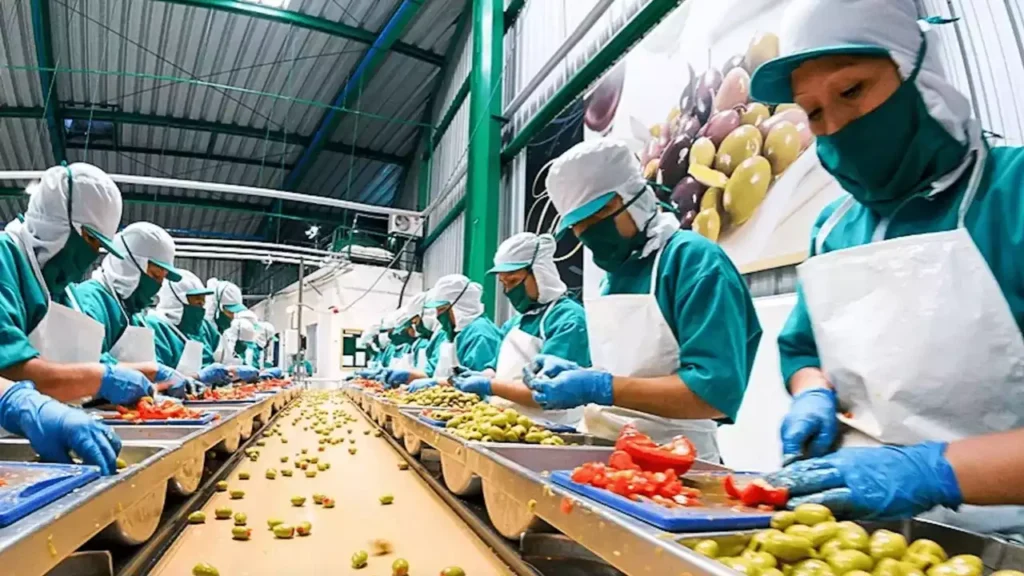Anita Praveen, the Secretary of the Ministry of Food Processing, highlighted the crucial role of research and development (R&D) in advancing the Indian food processing sector to new heights.
Speaking at the FICCI Scientific Symposium on ‘Processed Foods for Purpose’, Praveen emphasized the sector’s considerable growth potential and its importance as a priority area in India’s agricultural sector.
Praveen remarked, “The Indian agricultural sector is experiencing strong growth, marked by record production levels, and the food processing sector has emerged as a key area for development.”
She added, “We have already achieved substantial growth with our existing resources. Now, it is crucial for the food processing sector to prioritize R&D to propel it to the next level.”
Continue Exploring: Andhra Pradesh govt and SBI collaborate to establish 7,500 micro food processing units
She emphasized the crucial role of the food processing sector in stimulating economic growth and creating employment opportunities, especially for micro and small enterprises.
“Food processing is a major investment driver, especially for the micro and small sectors, and has the potential to attract more private investments,” stated Praveen.
“We’ve made substantial progress with the resources we currently possess. In order to take the industry to the next level of growth, it is now imperative to prioritise R&D,” she said.
The Secretary highlighted the strategic benefits of the food processing industry, pointing to the abundant availability of raw materials at competitive prices and the growing consumer demand both at home and abroad.
“This sector benefits from the availability of abundant raw materials at competitive prices and strong consumer demand both domestically and internationally. Now is the time to boost the food processing industry,” Praveen stated.
Praveen also discussed the critical issue of food wastage, stressing the importance of implementing comprehensive waste management strategies at every stage, from farm to table.
She emphasized the significance of direct collaboration between industry stakeholders, farmers, and small-scale processing units to improve efficiency and reduce wastage.
“Now is the opportune moment to connect these micro units with large industries. The bottom-up linkage approach will benefit large industries in controlling quality, upholding standards, and ensuring a consistent supply chain,” she added.
“The industry should prioritize consumer education, and we need to take a balanced approach to this educational effort. Consumers should be aware of what they are consuming, and ensuring quality food production is the industry’s responsibility,” she added.
To enhance export capabilities, Praveen advocated for increased collaboration between major industries and smaller units, highlighting the significance of quality control and the maintenance of strong supply chains.
She emphasized the industry’s role in consumer education, promoting transparency and a well-rounded approach to raising awareness about food quality and safety.
Siraj Hussain, Advisor to the FICCI Food Processing Committee and Former Secretary of the Ministry of Food Processing Industries, echoed Praveen’s views, underscoring the crucial role of food processing in safeguarding food safety and nutrition.
Continue Exploring: Preparations for World Food India 2024 gain momentum with industry leaders’ roundtable
“Food processing plays a vital role as the bridge between the farm and the table. It serves as a catalyst for economic growth, creates employment opportunities, and fosters innovation throughout the food sector. The significance of food processing in delivering safe, healthy, and nutritious food has now become paramount,” Hussain remarked.
He emphasized the sector’s potential to drive economic growth and foster innovation.
Sanjay Khajuria, President of CIFTI-FICCI and Director of Corporate Affairs at Nestle India Ltd, praised food processing as an emerging sector, applauding its advancements in modernization and sustainable economic growth.
“The food processing sector is seen as an emerging sector & has accomplished major achievements in modernization & sustainable economic growth in recent years,” he said.
Dr. Seema Bathla, a professor at the Centre for the Study of Regional Development, Jawaharlal Nehru University, emphasized the four fundamental elements of the Indian agricultural food system: production, consumption, ecology, and environment.
“The Indian agricultural food system comprises four key elements: production, consumption, ecology, and environment,” she stated.
With projections pointing towards an upward trajectory, the output of India’s food processing sector is anticipated to exceed USD 600 billion by the fiscal year 2025-26.
